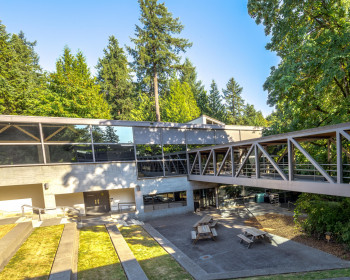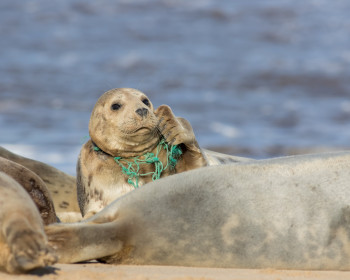LC throws a 50th birthday party for the Wilderness Act
Open gallery

The world’s first formal recognition of “wilderness” came fifty years ago when President Johnson signed into law the Wilderness Act which designated 9 million acres of “instant wilderness,” defined as “untrammeled” areas, where “man is a visitor who does not remain.” Last week, over 100 people joined together at Lewis & Clark to honor the anniversary with presentations and discussions of the Act’s meaning, impact and challenges.
Associate Dean Janice Weis kicked off the symposium with welcoming remarks and a showing of the pen President Johnson used to sign the Act. The pen was donated to the Environmental and Natural Resources Law program years ago.
The presenters included a panel of representatives from the US Fish and Wildlife Service, BLM, US Forest Service, National Park Service and the US Geological Survey. Academic presenters from ten law schools included Peter Appel (Georgia), John Leshy (Hastings), Eric Freyfogle (Illinois), Eric Biber (Berkeley) along with law student Elisabeth Long, John Nagle (Notre Dame), Mark Squillace (Colorado), Rob Glicksman (George Washington), Sandra Zellmer (Nebraska), Bret Birdsong (UNLV), and Michael Blumm (Lewis & Clark). The professors spoke about issues such as the impact on wilderness of grazing, climate change, water rights, cultural change, and NEPA. Most wrote articles that will be published in the next edition of Environmental Law. Peter Frost of the Western Environmental Law Center gave an update on wilderness litigation.
As Professor Michael Blumm, the symposium organizer, recently stated in an Oregonian editorial: “Johnson stated at the time that the statute was a vehicle for future generations to ‘remember us with gratitude rather than contempt’.” Thus it was fitting that the symposium ended with a reception for students, professors, federal agency staff and practitioners, and a celebration of fifty years of recognition of the importance of preserving wilderness for generations to come.
A recording of the symposium as well as all the power points, draft papers and other materials can be found online in the related content section.
More Environmental, Natural Resources, & Energy Law Stories
Environmental, Natural Resources, and Energy Law is located in Wood Hall on the Law Campus.
MSC: 51
email elaw@lclark.edu
voice 503-768-6649
Environmental, Natural Resources, and Energy Law
Lewis & Clark Law School
10101 S. Terwilliger Boulevard MSC 51
Portland OR 97219

